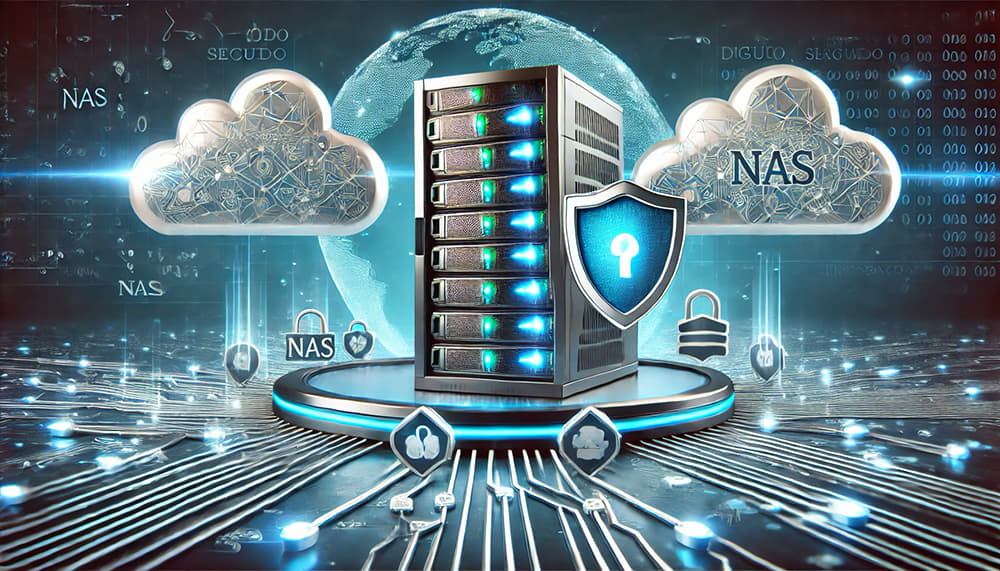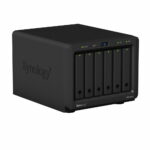In the digital age, protecting your information is essential. Network Attached Storage (NAS) servers are an effective and versatile solution to keep your data safe, both in your personal and professional lives. In this guide, we’ll explore what a NAS server is, its security features, and how to properly configure it.
Check out all our NAS servers at the following link.
What is a NAS Server and How Does It Work?
A NAS server is a network-attached storage device that allows data to be centralized and shared between multiple users. Unlike external hard drives, NAS servers are designed to operate continuously and provide remote access.
Differences between a NAS and a traditional server
While both serve to store and manage data, a NAS is more accessible and easier to use for those without advanced technical knowledge. While traditional servers often require complex configurations, NAS come with intuitive interfaces and simplified installation.
Main uses of a NAS server
- Centralized storage: Ideal for storing documents, photos and videos in one place.
- Backups: Make automatic backups from your devices.
- Remote access: Allows you to access your data from anywhere with an Internet connection.
- File sharing: Facilitates collaborative work by allowing simultaneous access to multiple users.
Security Options Offered by NAS Servers
Security is one of the strong points of NAS servers. These devices include advanced tools that protect your data from unauthorized access and technical failures.
Data Encryption: Protect Your Sensitive Information
Most NAS offer 256-bit AES encryption, which ensures that data is encrypted and can only be read by authorized users. This is crucial to protect sensitive information in the event of device loss or theft.
RAID Systems: Preventing Hardware Failures
RAID (Redundant Array of Independent Disks) is a technology that distributes data across multiple disks within the NAS. In the event that one fails, the data remains accessible, preventing data loss. The most common RAID levels are RAID 1, RAID 5, and RAID 6, each with specific advantages.
Tips for Setting Up a Secure NAS
Properly configuring your NAS is essential to ensure maximum security. Here are some recommendations.
Access and Permission Management
- Create individual accounts for each user.
- Assign specific permissions based on needs.
- Enable two-step authentication for added security.
Automatic Backups and Updates
Always keep your firmware up to date to protect yourself from vulnerabilities. Also, set up automatic backups to an external cloud or a secondary NAS.
Best NAS Models for Businesses and Individuals
Choosing the right NAS model will depend on your specific needs. Here are some top options we suggest.
NAS for small offices
- Synology DiskStation DS220+: Compact, easy to use, and packed with essential small business features.
- QNAP TS-230: Ideal for beginners, with multimedia support and basic security options.
Advanced options for businesses
- Synology RackStation RS1221+: Perfect for businesses with high data volumes. Offers advanced redundancy and excellent performance.
- QNAP TVS-h1288X: Powerful and with virtualization capabilities, ideal for complex business environments.
Protecting your data with a NAS server is an investment in security and peace of mind. Whether you need personal storage or a solution for your business, NAS servers offer the perfect combination of versatility, accessibility and protection. Make security of your data a priority!







